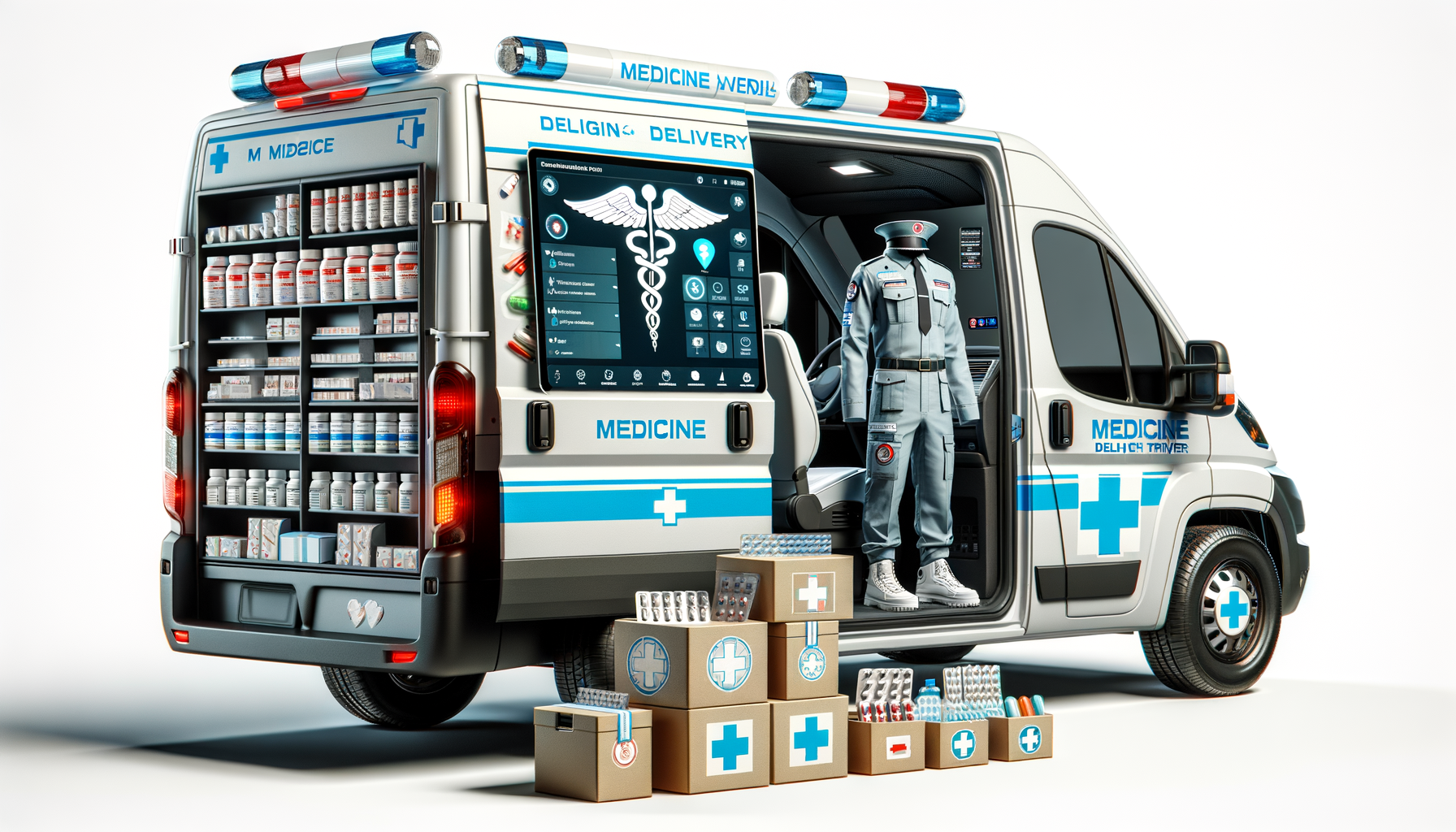
How to Become a Medicine Delivery Driver
Introduction to Medicine Delivery Driving
Medicine delivery drivers play a crucial role in the healthcare system by ensuring that medications reach patients promptly and safely. Their work supports various sectors, including hospitals, pharmacies, and home care services, reflecting the growing need for efficient healthcare logistics. As healthcare continues to evolve, the demand for reliable medicine delivery services increases, making this occupation both relevant and necessary.
With the rise of telehealth and online pharmacy services, medicine delivery drivers are more critical than ever. They bridge the gap between healthcare providers and patients by transporting prescriptions to homes, clinics, or care facilities. Understanding the responsibilities and skills required for this role can help individuals interested in pursuing a career in this field.
Key Responsibilities of a Medicine Delivery Driver
The primary responsibility of a medicine delivery driver is to transport medications safely and efficiently. This involves several tasks that require attention to detail and a commitment to safety standards:
- Route Planning: Drivers must plan their routes to ensure timely deliveries while minimizing fuel consumption and travel time.
- Safe Handling Practices: Medications must be handled with care, adhering to specific storage requirements to maintain their efficacy.
- Time-Sensitive Coordination: Deliveries often need to be completed within specific time frames, especially for critical medications.
- Customer Interaction: Drivers often serve as the face of the pharmacy or healthcare provider, requiring excellent customer service skills.
These responsibilities highlight the importance of reliability and professionalism in this role, as drivers contribute directly to patient care and satisfaction.
Skills and Qualifications Needed
Becoming a successful medicine delivery driver requires a combination of skills and qualifications. While specific requirements may vary by employer, some common qualifications include:
- Valid Driver’s License: A clean driving record and a valid license are essential for this role.
- Knowledge of Local Routes: Familiarity with the delivery area can enhance efficiency and reduce delivery times.
- Attention to Detail: Ensuring the correct medications are delivered to the right locations requires precision and care.
- Customer Service Skills: Interacting with patients and healthcare providers requires professionalism and empathy.
In addition to these skills, some employers may require specific training in handling medications or certifications related to healthcare delivery services.
Challenges Faced by Medicine Delivery Drivers
Medicine delivery drivers encounter various challenges that require adaptability and problem-solving skills. Some of these challenges include:
- Traffic and Route Changes: Navigating through traffic or unexpected road closures can impact delivery schedules.
- Weather Conditions: Adverse weather can pose risks to both the driver and the medications being transported.
- Handling Sensitive Information: Drivers often deal with confidential patient information, requiring adherence to privacy regulations.
- Time Management: Balancing multiple deliveries with varying time constraints requires effective time management skills.
Despite these challenges, many drivers find the role rewarding as they contribute to the well-being of patients by ensuring timely access to necessary medications.
Opportunities and Career Growth
The field of medicine delivery offers various opportunities for career growth and advancement. As healthcare logistics continue to expand, drivers can explore additional roles such as:
- Logistics Coordinator: Overseeing delivery operations and optimizing routes for efficiency.
- Healthcare Administration: Transitioning into roles that involve managing healthcare delivery services.
- Specialized Delivery Services: Focusing on niche areas such as delivering specialized medical equipment or supplies.
With experience, drivers can leverage their skills to pursue these opportunities, enhancing their career prospects within the healthcare sector. The growing demand for reliable delivery services ensures a stable and promising career path for those interested in this field.


